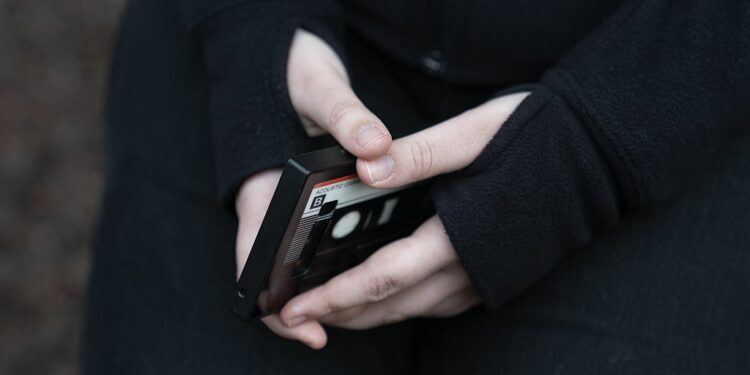Related
Researchers said the results raise concerns about how technology is shaping young people’s lives.
“It’s clear that social media can have both positive and negative consequences on the health and wellbeing of adolescents,” Dr Hans Kluge, WHO’s Europe director, said in a statement, calling for “action to help adolescents turn the tide on potentially damaging social media use, which has been shown to lead to depression, bullying, anxiety, and poor academic performance”.
Which young people are chronically online?
The report surveyed young people ages 11, 13, and 15 across 44 countries in Europe, Central Asia, and Canada in 2022.
It shows that 36 per cent of adolescents are in contact with friends online throughout the day, with that rate rising to 44 per cent among 15-year-old girls.
Generally, wealthier kids were more likely than those from lower-income families to be in constant online contact with friends – a trend seen in 22 countries for boys and 27 countries for girls.
Not everyone on social media uses it in unhealthy ways. In addition to the 11 per cent of young people who were problematic social media users, 32 per cent were “intense” users – meaning they’re almost always online but don’t have symptoms of problematic use – while 44 per cent were active users and 12 per cent were rarely active online.
Thirteen-year-olds, particularly girls, were the most likely to use social media in problematic ways, the report found.
Social media has complicated effects on young people’s wellbeing. In a previous study by some of the same researchers, they found that problematic social media users had poor mental and social wellbeing – which tracks levels of support from friends and classmates – and were more likely to smoke cigarettes, drink alcohol, or use cannabis.
But while non-active users were less likely to use these substances, they also had poorer mental and social wellbeing than adolescents who actively used social media.
Related
The data has some caveats, given the debate over the exact point where social media use becomes problematic hasn’t been entirely settled.
The WHO definition is an “unvalidated tool,” Ben Carter, a professor of medical statistics at King’s College London, said in a statement.
“Whilst better than merely ‘screentime,’ it isn’t entirely based on the [official diagnostic] criteria for defining a behavioural addiction”.
Even so, he said it is “a useful starting point for measuring potential harm” from social media.
Boys at higher risk of problematic gaming
Gaming is another key avenue for young people to connect online. In the study, 68 per cent of young people were classified as non-problematic gamers, but another 12 per cent were considered at risk of problematic gaming.
Malta, England, Cyprus, Estonia, and Serbia had the highest rates of young people at risk of problematic gaming, and boys were generally at higher risk than girls.
“The gender differences in gaming patterns are striking,” Dr Claudia Marino, a researcher at the University of Padova in Italy and one of the study authors, said in a statement.
Problematic gaming isn’t just about the amount of time spent on the console. Symptoms of gaming addiction include feeling a lack of control over the level of video game use and when gaming starts to interfere with relationships, work, or school.
Related
Like with social media, video games can have both a positive and negative impact on mental health. A major study in Japan conducted during the COVID-19 pandemic found that owning a video game console improved people’s psychological wellbeing and life satisfaction.
Meanwhile, researchers from the Oxford Internet Institute tracked the moods of nearly 8,700 people while they played a popular video game, and found that nearly three in four gamers experienced a mood boost while playing. Most of the improvement came during the first 15 minutes of gaming.
The challenge is identifying when gaming moves from a mood-boosting pastime to a full-blown addiction, and how online gaming affects children compared with adults.
Steps to curb problematic use
The new findings underscore “the need for targeted interventions that consider gender-specific motivations and risk factors in gaming behaviour,” Marino said.
The study authors said tighter regulations should be in place governing young people’s access to social media and online gaming, and that these companies should enforce their age restrictions, often set to 13.
Related
Kluge also said educating children about digital literacy could help them balance their online and offline lives.
As it stands, digital literacy “remains inadequate in many countries, and where it is available, it often fails to keep pace with young people and rapidly evolving technology,” Kluge said.
“We are seeing the consequences of this gap, with worse likely to come, unless governments, health authorities, teachers and parents recognise the root causes of the current situation and take steps to rectify it”.
Source link : http://www.bing.com/news/apiclick.aspx?ref=FexRss&aid=&tid=66f35adfde0f499ea650598b0a804fc7&url=https%3A%2F%2Fca.news.yahoo.com%2Fproblematic-social-media-rise-among-230109757.html&c=6774738796752163999&mkt=de-de
Author :
Publish date : 2024-09-24 16:02:00
Copyright for syndicated content belongs to the linked Source.


